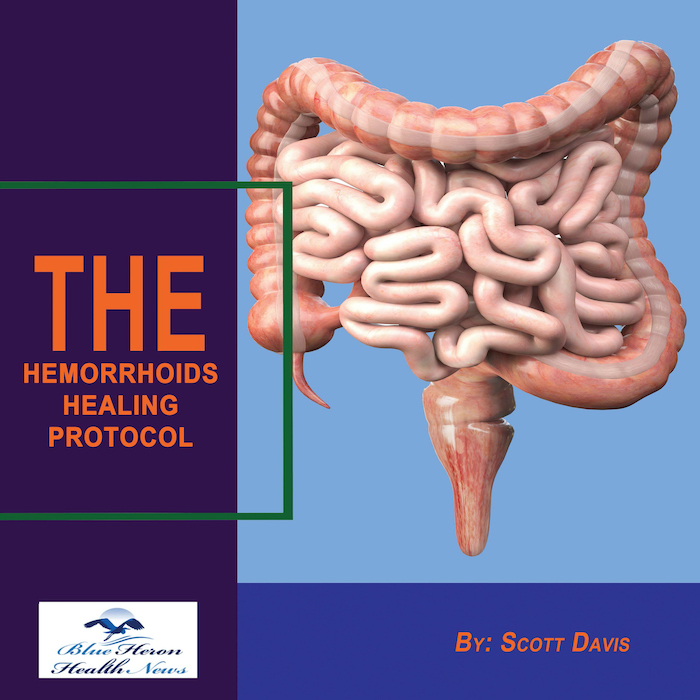
The Hemorrhoids Healing Protocol™ By Scott Davis Hemorrhoid healing protocol is a three-week online program that helps in treating and reducing hemorrhoids. It teaches gentle recipes and movements, natural and effective remedies that help in treating hemorrhoids.This program is not like the usual prescription medicines, it is a hell of a lot more than just those drugs. It focuses more on elevating the two main not so good habits that are connected to the Hemorrhoids. Overall the sole motive of this program is to remove the problem from its root instead of just treating the symptoms.
How can one manage pain after hemorrhoid surgery?
Managing pain after hemorrhoid surgery is a crucial part of the recovery process. Pain is common, especially in the first few days following the procedure, and can be effectively managed through a combination of medications, home remedies, and lifestyle adjustments. Here are various strategies to help manage pain after hemorrhoid surgery:
1. Medications for Pain Relief
- Over-the-Counter Pain Relievers: Medications like ibuprofen (Advil, Motrin) or acetaminophen (Tylenol) can help relieve mild to moderate pain and reduce inflammation.
- Prescription Pain Medication: In some cases, doctors may prescribe stronger pain medications (such as opioids) if the pain is severe. These should be used as directed and typically for short periods to avoid dependency.
- Topical Anesthetics: Doctors may recommend using lidocaine creams or ointments that can be applied directly to the surgical site to numb the area and reduce discomfort, especially before bowel movements.
2. Sitz Baths
- Warm Sitz Baths: Soaking in a sitz bath (a shallow warm water bath for the buttocks and hips) several times a day, especially after bowel movements, is one of the most effective ways to manage pain and soothe the surgical area.
- Frequency: Taking a sitz bath for 10 to 15 minutes, 2 to 3 times a day can reduce inflammation, promote healing, and provide relief from pain and itching.
- Epsom Salt: Some people find that adding Epsom salt to the warm water enhances the soothing effects, but this should only be done with the approval of a healthcare provider.
3. Cold Compresses
- Ice Packs: Applying ice packs or cold compresses to the anal area can help reduce swelling and numb the area, providing pain relief, especially in the first few days post-surgery.
- How to Use: Wrap the ice pack in a towel to avoid direct contact with the skin and apply it for 10-15 minutes at a time, several times a day, particularly after a sitz bath or during periods of discomfort.
4. Stool Softeners and Fiber Supplements
- Stool Softeners: To reduce pain during bowel movements, doctors often recommend stool softeners (such as docusate). This can help make stools softer and easier to pass, preventing straining and further irritation to the surgical site.
- Fiber Supplements: Supplements like psyllium husk or methylcellulose can help increase fiber intake and promote regular, soft bowel movements, reducing the risk of pain and injury during defecation.
5. Dietary Changes
- High-Fiber Diet: Consuming a high-fiber diet rich in fruits, vegetables, whole grains, and legumes can help soften stools and promote easier bowel movements, reducing strain and pain. Foods such as oatmeal, lentils, broccoli, and apples are excellent choices.
- Stay Hydrated: Drinking plenty of water (at least 8-10 glasses per day) helps prevent constipation and keeps stools soft, making bowel movements less painful.
6. Proper Wound Care
- Keep the Area Clean: Gently cleaning the anal area with warm water after bowel movements (using a showerhead or a sitz bath) and patting dry with a soft towel helps prevent infection and irritation.
- Avoid Harsh Soaps: Using mild, unscented soaps and avoiding alcohol-based wipes can help prevent irritation to the sensitive post-surgical area.
- Moist Wipes or Bidet: Using moist wipes or a bidet can provide a gentler alternative to toilet paper, reducing discomfort after bowel movements.
7. Avoid Straining
- Prevent Constipation: Constipation and straining can worsen pain and prolong recovery. Using stool softeners, increasing fiber intake, and staying hydrated are key to preventing constipation.
- Take Your Time: Don’t rush bowel movements, but avoid sitting on the toilet for prolonged periods, as this can increase pressure on the rectal area and cause pain.
8. Rest and Gentle Activity
- Rest: Rest is important, especially in the first few days after surgery, to allow the body to heal. Avoid sitting for long periods, as this can increase pressure on the surgical site.
- Light Walking: Short, gentle walks can help promote blood circulation and prevent complications like blood clots, but avoid heavy lifting or strenuous activities for at least 2-4 weeks, depending on your doctor’s advice.
9. Positioning and Cushioning
- Use Cushions: Sitting on a donut-shaped cushion or a soft pillow can reduce pressure on the anal area and make sitting more comfortable during recovery.
- Change Positions Frequently: If you need to sit for extended periods, change your position frequently to avoid putting constant pressure on the surgical site.
10. Follow-Up Care
- Attend Follow-Up Appointments: Regular follow-up appointments with your doctor are important to ensure that the healing process is progressing as expected and to address any issues like persistent pain or signs of infection.
- Watch for Signs of Complications: If you experience severe pain that doesn’t improve with treatment, fever, increased redness, swelling, or discharge from the surgical site, contact your doctor, as these may be signs of infection or other complications.
11. Avoid Alcohol and Caffeine
- Reduce Irritants: Caffeine and alcohol can dehydrate the body and may contribute to constipation, making bowel movements more painful. Reducing or avoiding these substances during recovery can help prevent discomfort.
12. Mindful Breathing and Relaxation Techniques
- Relaxation: Deep breathing, meditation, or relaxation techniques can help manage stress, which can sometimes exacerbate pain. Relaxation techniques may help reduce the anticipation of pain during bowel movements and improve overall pain tolerance.
Conclusion
Managing pain after hemorrhoid surgery involves a combination of medication, home remedies like sitz baths and ice packs, and lifestyle changes such as a high-fiber diet and proper wound care. It’s important to follow your doctor’s recommendations for pain relief and avoid activities that could strain the surgical area. Most patients find that pain diminishes significantly after the first week, but complete recovery can take several weeks.
The Hemorrhoids Healing Protocol™ By Scott Davis Hemorrhoid healing protocol is a three-week online program that helps in treating and reducing hemorrhoids. It teaches gentle recipes and movements, natural and effective remedies that help in treating hemorrhoids.This program is not like the usual prescription medicines, it is a hell of a lot more than just those drugs. It focuses more on elevating the two main not so good habits that are connected to the Hemorrhoids. Overall the sole motive of this program is to remove the problem from its root instead of just treating the symptoms.
